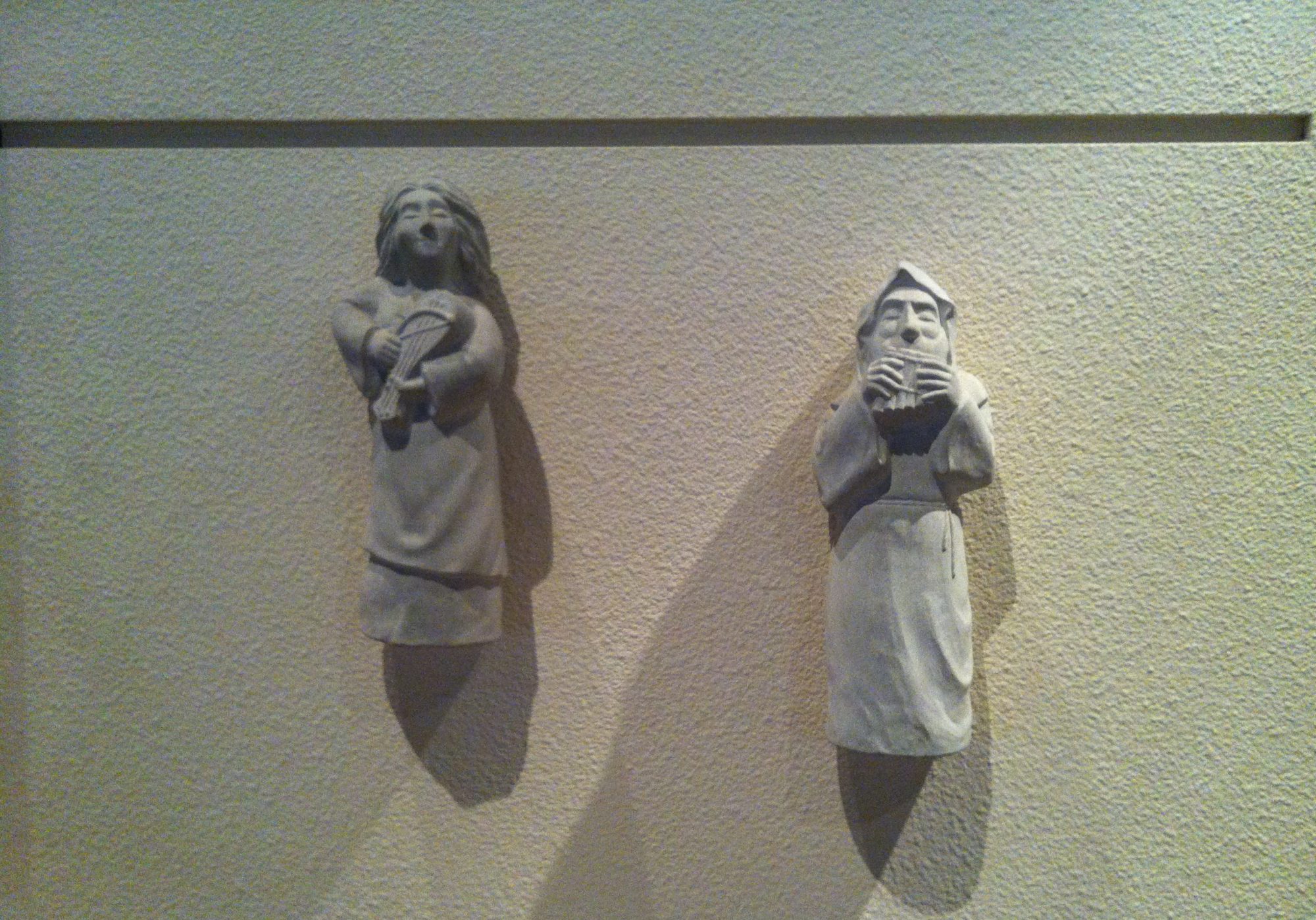Last year, my father died on the day before Ash Wednesday. He was 85 years old, and he’d lived a wonderful, respectable Christian life, full of charity toward others, including prison ministry in his retirement. He’d enjoyed a fulfilling professional career, been a good friend to many, and was happily married for over 50 years to a wonderful woman with whom he’d raised a big, happy family. Letting go of this kind, funny, intelligent and loving man was hard and sad, but something about it also felt right. It was Dad’s time, and we’ll all have our time.
Ash Wednesday invites us all to reflect on “our time” – to remember that indeed our time approaches, even if still far off. We wear ashes on our foreheads to symbolize, as a recent NPR article put it, that we are all “dust-creatures”. There is an impermanence to our earthly lives that we must never forget, lest we fail to live lives of charity and love with every breath. Psalm 95 says, “If today you hear God’s voice/harden not your hearts,” for tomorrow, you may be gone. On Ash Wednesday we remember that we are dust, and to dust we shall return.

This isn’t meant to be a downer, or a macabre fixation on death. Admittedly, life is good, but you can have too much of a good thing. And then the good thing becomes less good. J.R.R. Tolkien, in his Middle-Earth mythology, portrayed the immortal Elves as distinctly sad in character, because their immortality dooms them to watch their numinous race “dwindle to a rustic folk of dell and cave, slowly to forget and to be forgotten.” (Fellowship of the Ring, 356) But “Men” (that is, humans) in Middle-Earth have been given a special gift by Illúvatar (the God of all in Tolkien’s mythology), which the Elves have not:
“It is one with this gift of freedom that the children of Men dwell only a short space in the world alive, and are not bound to it, and depart soon whither the Elves know not. Whereas the Elves remain until the end of days, and their love of the Earth and all the world is more single and more poignant therefore, and as the years lengthen ever more sorrowful. For the Elves die not till the world dies […] But the sons of Men die indeed, and leave the world; wherefore they are called the Guests, or the Strangers. Death is their fate, the gift of Illúvatar, which as Time wears even the Powers shall envy. But Melkor [Tolkien’s Satan figure] has cast his shadow upon it, and confounded it with darkness, and brought forth evil out of good, and fear out of hope.” (Tolkien, The Silmarillion, 42)
The above passage is a great example of an important aspect of fantasy literature: it helps us recover realities that grow distorted in our vision over time. Tolkien said stories help us “to clean our windows; so that the things seen clearly may be freed from the drab blur of triteness or familiarity – from possessiveness.” (“On Fairy-Stories,” 373) The Melkors of the world have cast their shadow upon the fact that we’re all going to die someday – have confounded “our time” of passing with darkness, causing us to fear it as something evil. But Tolkien’s mythology helps us re-learn our mortality as a gift from God, as a chance to live heroically in this life while we can, rather than linger indefinitely, watching ages come and go like the lugubrious Elves. Life, it reminds us, is a limited-time offer – a chance at which we must jump.
When one has lived in this way – jumping at every chance life gives to follow Christ – then we are able to make a good end, when it is our time. Another fantasy author, J.K. Rowling, presents three options for how we might face death in “The Tale of the Three Brothers” (Harry Potter and the Deathly Hallows, chapter 21), recovering, in the example of the third brother, the notion of death as friend instead of as enemy. The oldest brother tries to “conquer” Death; his lust for power is his downfall, and Death takes him “for his own.” The second brother lives in unending longing for one he has lost to Death; his sorrow is his own undoing, and Death takes him as well. But the third brother wears a cloak which hides him from Death – not unlike that cloak of grace with which we are clothed in Christ. This cloak hides the third brother from death until he is old. When his time comes, he passes the cloak to his son, “And he greeted Death as an old friend, and went with him gladly.” (409)

Ash Wednesday begins the season of Lent by reminding us that one day, death with come for us. With this reminder comes an invitation to live, clothed in Christ, so that we may one day greet death like a friend.

What a great post! I love the Tolkien quotes and the thoughts therein. CS Lewis is interesting too. In Magicians Nephew Diggory is offered eternal life and turns it down. And, of course, if Death wasn’t part of nature – everything from microbes to mammoths and us – nothing could ever be renewed and there’d be no new life. There wouldn’t be room on earth!